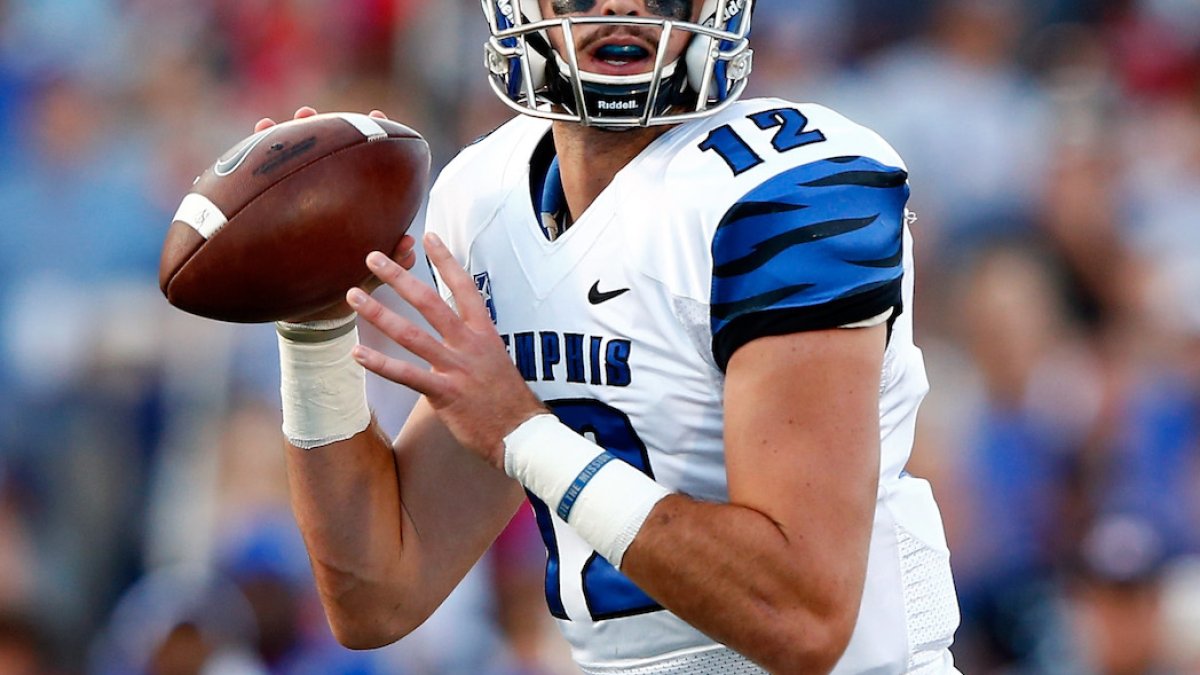It’s tough to fault the Denver front office for the way it handled the team's QB situation this offseason. Life after Peyton Manning was always going to be awkward for a team that instantly became contenders with his arrival, and would be in danger of instantly slipping from that status with his departure.
Brock Osweiler was supposed to be the cheap stop-gap, but seven games of starting material was enough to convince the QB-starved NFL that he was worth a $72 million contract, but perhaps tellingly, the Broncos thought that was too rich for them by far and let him walk.
That left Denver staring into the draft with a pick to finish the first round and the prospect of two, maybe three, of the best QBs being gone by the time they selected.
Paxton Lynch was seen in some circles as a guy who could go in the top 10 after Jared Goff and Carson Wentz went one-two. When that proved to be false and Lynch began to slide within range, the Broncos traded up to No. 26 overall and grabbed the third-best QB in the draft, giving them their presumed quarterback of the future.
Lynch will come with a fraction of the price tag Osweiler would have, and demonstrates several of the same traits. In all honesty, he may be a better fit for this Gary Kubiak-style of offense than Osweiler was, anyway.
Lynch came out of an offense in Memphis that was every bit as divorced from “pro-style” systems as the hyper-spread systems the NFL rails about. Lynch would roll out constantly and regularly only be reading half the field. You can go through his tape and spend a long time before you see him need to move to his second read in his progression, and even many of those plays are more single-reads of a defender against a combination of routes—high/low and hit the receiver that doesn’t draw the defender.
Kubiak is of course well known for his roll-out offense and play-action passing plays. Lynch, for a big quarterback, is also pretty athletic—more so than Osweiler, and probably more than any quarterback Kubiak has had in the system for quite some time. His athleticism is comparable to that of Joe Flacco, and I’d give Lynch the edge in that regard. Flacco enjoyed his best year for a long time with Kubiak in charge of the offense in Baltimore, thriving on some of these concepts.
Play-action passes are usually designed to open up big plays. Joe Flacco has always had a cannon for an arm, but has rarely been able to bring it under control and be accurate with the deep balls such a system allows him to throw. Lynch is accurate on those passes. In fact, last season he was accurate on 51.8 percent of passes that traveled 20+ yards in the air. That was the fifth-best mark in the FBS, and would have been the best mark in the NFL, where obviously competition and coverage is tougher.
Lynch completed 25 passes on go-routes in 2015 for 675 yards and eight scores without throwing a single pick. These are the plays that turn this offense into a highly-effective outfit. Lynch can take advantage of the play-action fakes to unload deep and make big plays, but he is also used to throwing on the run and hitting the horizontal patterns for more modest gains that the system also schemes up.
In abstract terms, Paxton Lynch is a great fit in this Denver scheme, and while I don’t think his tape warrants a first-round selection overall, he has improved each season of his college career. His draft stock was clearly being pushed into that range—warranted or not—and in taking him at No. 26, the Broncos get that all-important fifth-year option on his contract, which is a big deal in today’s NFL.
All in all, it’s tough to find too much fault with the way John Elway and the Broncos have moved on from Peyton Manning, and Lynch represents a genuinely-exciting potential starter for them in the future.



 © 2025 PFF - all rights reserved.
© 2025 PFF - all rights reserved.